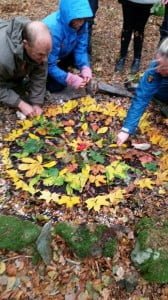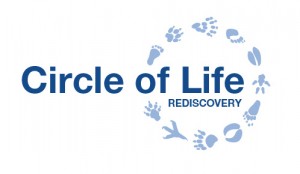Forest School Training Level 3
A recent Facebook post asked if you can run a Forest School programme without completing the Forest School Training Level 3.
The short answer is, you don’t need qualifications to take people outdoors, nor to necessarily offer great learning and development practice. If you are a parent, you like all of us have a ‘duty of care’ to young people and when you work with other people’s children, you need to abide by Health and Safety law and insurance requirements.
Why does anyone study?
Hopefully to improve themselves, and learn how to be better at what they do. The more we know, the more we understand how many skills and attributes are actually needed to work with groups. How do we safely (yet wanting risk) support the whole development of children? How to we facilitate them towards a ‘good enough’ sense of self, and co-lead them on a journey to health and fulfilment?
“Forest School is an inspirational process, that offers ALL learners regular opportunities to achieve and develop confidence and self-esteem through hands-on learning experiences in a woodland or natural environment with trees. Forest School is a specialised learning approach that sits within and compliments the wider context of outdoor and woodland education.”
(From www.forestschoolassociation.org)
Forest School Training Level 3 – a learning community
 The Forest School training (I am an endorsed trainer from the UK Forest School Association – a charity) is very comprehensive. It provides a learning community in the outdoors, with embodied learning experiences – leading to a recognised and valued qualification.
The Forest School training (I am an endorsed trainer from the UK Forest School Association – a charity) is very comprehensive. It provides a learning community in the outdoors, with embodied learning experiences – leading to a recognised and valued qualification.
Forest School is an approach not a copyrighted name. So there are people and organisations who are offering Forest School without training. The problem with this, as in all fields, is that you don’t have any way of knowing the quality or standards of practice.
This is not to say the quality of non-trained staff may not be great, just it’s more likely trained people will really provide the ethos, values, multiple skills, observations, have self-reflection, empathy, practical skills and instil a real love of the natural world. Not many people or other qualifications give this range of pedagogy and skills.
Insurance
Most insurers will insure what you say you do. If you use knives and fire (the physical, psychological, emotional developmental benefits are huge), then they would expect you to have some training in this, for relevant ages. Not all great Forest School sessions use fire or knives because the point is to develop a child’s self-worth, and whole development, not to be a great crafts person, though they may choose to develop those skills.
Quality Training
 The best quality Forest School provision, is to get trained by people who take you into nature and model practice with all the benefits that direct contact with nature provides.
The best quality Forest School provision, is to get trained by people who take you into nature and model practice with all the benefits that direct contact with nature provides.
There are lots of great trainings around the world that teach people to effectively work with young people in the outdoors. I am not attached to one model, but appreciate how much thought has gone into the model, and there is not much missed out.
Like any training, it’s often the dynamic relationship with the trainers/the people/the place & season, the resources that make the ingredients of great experiences.
Values of Forest School
Forest School, like many long term nature connection education programmes under other names, have spawned in various countries in recent times, which share common values.
At the heart of Forest school is valuing every learner and the contribution they make to the learning community. This means working with learner’s needs, interests, motivations and preferred ways of learning, and alongside this recognising the intrinsic value of the non-human world.
Respect and humility are core values that all Forest School practitioners work with, which means giving ‘power’ over to our own learners for their own learning – through providing choice, tempered with compassion for the non-human. In a nutshell this is a holistic form of education creating a vibrant nature-based learning community.
 What we are hoping to arise from these values is the building of resilience, creativity, self-worth, emotional literacy, connection to and caring for the non-human world, so our planet and society thrives. The important aspects that make Forest School special are the playful ‘equal’ ‘relationships’, and the deeply empathic connections that develop. But that is not all!
What we are hoping to arise from these values is the building of resilience, creativity, self-worth, emotional literacy, connection to and caring for the non-human world, so our planet and society thrives. The important aspects that make Forest School special are the playful ‘equal’ ‘relationships’, and the deeply empathic connections that develop. But that is not all!
When children and young people feel that they are ‘enough’ are supported to have ‘agency’ and their experiments and mistakes valued, they turn out be creative, critical thinkers. Being able to play and master skills, lays the brain networks of learning and development that are life-long attributes and prevent mental ill health.
Principles of Forest School
There are a number of principles that have been explicitly expressed, see UK Forest School Association website, that are underpinned by the above values. These principles (in our words) are;
- Developing a relationship between learners and the natural world that features mutuality and compassion.
- Facilitating a long term programme of regular contact with the natural world that make deeper, caring nature connections.
- Working in a learner-centred way whereby an ‘equal’ learning community is developed where there is a combination of autonomous and communal learning, featuring joint decision making regarding the learning. Forest School follows a constructivist approach whereby the learning, in and of, the real natural world and themselves emerges.
- Risk taking in a safe context is encouraged, enabling learners to move into their learning zones where they can manage their own risks be they emotional, physical, cognitive or social risks.
- Developing the whole person, supporting cognitive processes and fostering creative, resilient, physically healthy independent learners.
- Practitioners who are qualified and continually reflect on, and develop, their own learning and Forest School facilitation.
Forest School is seen as a relatively new phenomena – the term being devised in 1993 by a group of nursery nurses at Bridgewater College who established their own ‘Forest School’ after visiting some early years settings in Denmark. Forest school is based on many years of tradition of outdoor learning and pedagogy.
Whilst a practitioner plans, considers last week’s evaluation, risk assesses all sessions in advance, the day brings it’s ever changing surprises! As practitioners we are responding to ourselves, others, nature and the resources available all the time to enable a holistic, healthy and ‘in the moment’ experience.
Many years of research have left us without any doubt as to why and how nature fosters healthy child development. The combination of allowing children to play, in the outdoors, enables the ideal context for young people to grow, learn and be happy.
“A child’s neurological systems naturally seek out the sensory input they need on their own – they determine how much, how fast, how high works for them at any given time. If they are spinning in circles it is because they need to; if they are jumping off a rock over and over, it is because they are craving that sensory input. They are trying to organise their senses through practice and repetition.”
Sue Waite (Natural Connections).
Forest School Training Level 3 with Circle of Life Rediscovery
Our Forest School Training Level 3, trains us following our natural operating biological, evolutionary and sensory system. This approach to learning and developments forms an essential part of a healthy life, that we hope will form part of every child’s school experience.
 Our next course takes place in November 2019 in East Sussex and the dates are:
Our next course takes place in November 2019 in East Sussex and the dates are:
Part 1: 21 & 22nd November 2019 at Mill Woods and 25th, 26th, 27th November 2019 at Parkwood Campsite.
Part 2: 27th, 28th February 2020 at Parkwood Campsite and 2nd, 3rd March 2020 at Mill Woods.
Find out more about our Forest School Training Level 3, please visit our website.
2019 Feedback:
“The trainers were all passionate, engaging, knowledgeable and encouraging. I found the child development/neuro-science part fascinating!”
“I really enjoyed learning about woodland management and how to plan this in my own setting.”
“I have learnt that all people can benefit from being in nature, especially children with SEND, I am excited to take what I have learnt to my school.”
“I loved the games, songs, craft activities, learning theories, it was magical. It has made me feel calm and reflective.”
“You have inspired me so much through your creativity, I felt like I was in a very nourishing environment, you were always there for the group and very supportive.”
“It has made me more aware of the environment and really opened my mind to new possibilities in getting children involved with nature. Plus I have found my own calm!”
“The training has been an incredible journey. The leaders were so knowledgeable but not at all intimidating.”
Look out this year for a new book on Forest School co-authored by Marina Robb and Jon Cree! To hear about this plus our other events, news and trainings, please sign up to our newsletter here.
Marina.
Marina Robb (Msc; MA; PGCE)
Director: Circle of Life Rediscovery CIC/Circle of Life Training
07966 514469 / 01273 814226
Email: [email protected]
 Transforming education, health and family through nature.
Transforming education, health and family through nature.
Circle of Life Rediscovery provides exciting and highly beneficial nature-centred learning and therapeutic experiences for young people, adults, and families in Sussex woodlands, along with innovative continuing professional development for the health, well being and teaching professionals who are supporting them.

